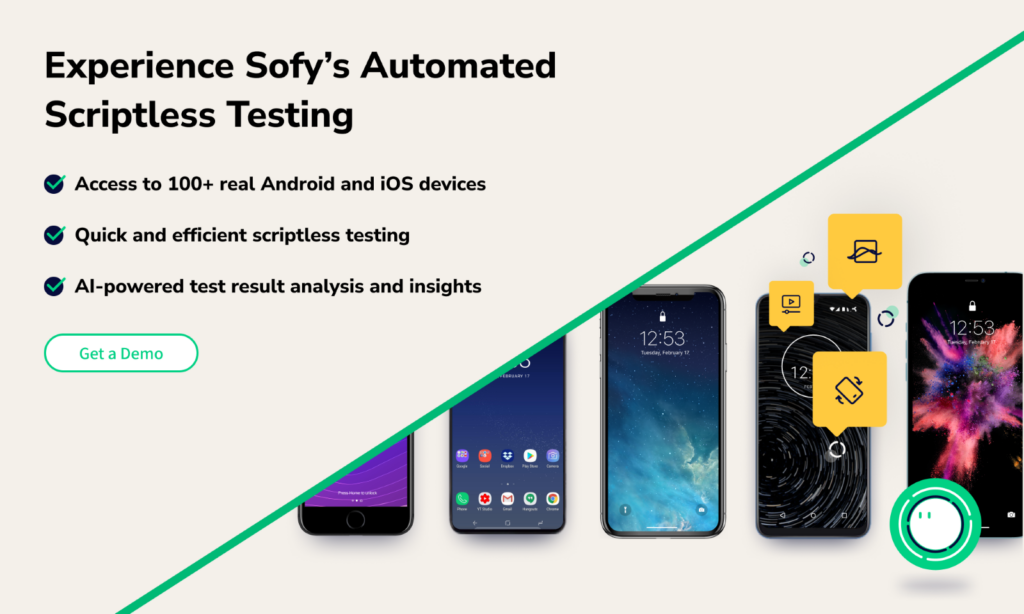Ensuring that mobile apps function seamlessly across various devices and platforms is a critical aspect of software development. One of the most effective ways to achieve this is through rigorous API testing. APIs are the backbone of modern mobile apps, facilitating communication between different software components. Proper testing of these APIs ensures that the app performs reliably, securely, and efficiently.
What is API Testing?
API testing involves verifying and validating APIs used in your mobile app to ensure they meet expected functionality, reliability, performance, and security standards. Testing these APIs is crucial because it ensures seamless integration, efficient performance, and a robust user experience.
Why is API Testing Important?
API testing is an important part of mobile app testing for several reasons:
- Verifies that the API functions correctly and as intended.
- Confirms that the API performs consistently under different conditions.
- Identifies potential vulnerabilities and ensures data protection.
- Evaluates the API’s performance under various loads and stress conditions.
- Ensures smooth interaction between different software components, leading to a cohesive user experience.
Types of API Testing

1. Functionality Testing
Functionality testing ensures that the API operates according to the specified requirements and performs its functions correctly.
This includes verifying:
- Endpoints: API endpoints are mapped correctly and reach their intended endpoints.
- Responses: Responses include the expected data in the correct format.
- Request Methods: Requests like GET, POST, PUT, DELETE are handled properly
- Error Handling: Ensures appropriate error messages and codes for incorrect inputs or requests that appear.
2. Reliability Testing
Reliability testing assesses the API’s ability to perform consistently under various conditions over an extended period.
This includes:
- Uptime Monitoring: Ensures the API is consistently available.
- Response Consistency: Verifies that responses are consistent over time and across different requests.
3. Performance Testing
Performance testing evaluates the speed, responsiveness, and stability of the API under different conditions. This includes:
- Load Testing: Assesses the API’s performance under expected load conditions.
- Stress Testing: Evaluates how the API performs under extreme or peak conditions.
- Scalability Testing: Determines if the API can handle increasing requests without degradation in performance.
4. Compliance Testing
Compliance testing ensures that the API meets industry standards and regulations, such as GDPR, HIPAA, or PCI DSS. This involves:
- Data Privacy: Ensures personal data is handled according to legal requirements.
- Audit Trails: Verifies that all interactions with the API are properly logged and traceable
5. Integration Testing
Integration testing validates that the API interacts correctly with other APIs, services, and components in the system. This includes:
- Interoperability: Ensures seamless communication between different systems and services.
- Data Flow: Verifies that data flows correctly through various components and services.
6. Security Testing
Security testing identifies vulnerabilities and ensures data protection. This includes:
- Authentication and Authorization: Ensures that only authorized users can access certain endpoints.
- Data Encryption: Verifies that data is encrypted during transmission.
- Vulnerability Scanning: Checks for common security issues such as SQL injection, Cross-Site Scripting (XSS), and Cross-Site Request Forgery (CSRF).
7. Usability Testing
Usability testing ensures the API is easy to use and integrates well with other systems. This includes:
- Documentation: Checking the completeness and clarity of the API documentation.
- Developer Experience: Ensuring that the API is intuitive and easy for developers.
Examples of API Tests
Here are some common scenarios and examples of how APIs can be tested in mobile apps:
1. User Authentication
Scenario: Verify the API that handles user login and registration.
- Test Case: Ensure the API returns a valid authentication token when the correct credentials are provided.
- Method: Send a POST request to the
/loginendpoint with valid and invalid credentials and check the response. - Expected Result: A successful login should return a token and user information, while incorrect credentials should return an error message.
2. Fetching User Data
Scenario: Validate the API that retrieves user profile information.
- Test Case: Verify that the API correctly fetches the user profile data when provided with a valid user ID.
- Method: Send a GET request to the
/user/{id}endpoint and check the response data. - Expected Result: The API should return the correct user profile info corresponding to the user ID.
3. Product Search Functionality
Scenario: Test the API that enables product search in an e-commerce app.
- Test Case: Ensure the API returns relevant search results based on the query parameter.
- Method: Send GET requests to the
/searchendpoint with different search queries and analyze the response. - Expected Result: The API should return a list of products matching the search query.
4. Adding Items to Cart
Scenario: Validate the API that handles adding products to the shopping cart.
- Test Case: Verify that the API adds items to the cart and returns the updated cart details.
- Method: Send a POST request to the
/cart/addendpoint with product details. - Expected Result: The API should add the product to the cart and return the updated contents.
5. Payment Processing
Scenario: Test the API responsible for processing payments.
- Test Case: Ensure the API processes payments correctly and securely.
- Method: Send a POST request to the
/payment/processendpoint with payment details. - Expected Result: The API should return a successful payment confirmation and handle errors for failed transactions.
How Sofy Can Improve API Testing

Sofy leverages advanced AI and machine learning technologies to enhance the API testing process, offering several key benefits:
- Automated Test Case Generation: Sofy uses AI to automatically generate test cases, reducing the time and effort required for manual test creation. This ensures comprehensive coverage and faster testing cycles.
- Real-Time Testing on Real Devices: Sofy’s real device cloud allows you to test APIs in real-world scenarios, ensuring that your app functions correctly on actual devices and under real user conditions.
- CI/CD Support: Sofy seamlessly integrates with CI/CD pipelines, enabling automated testing as part of the development process. This ensures that your app is continuously tested and validated with each code change.
- Advanced Reporting and Analytics: Sofy provides detailed reports and analytics on test results, helping developers quickly identify and address issues.
- Scalability: Sofy can handle large-scale testing, simulating thousands of concurrent users to ensure your app can scale to meet high demand.
Elevating API Testing with Comprehensive Strategies
API testing is critical to mobile app development, ensuring that the application performs reliably, securely, and efficiently. By understanding and implementing different types of API testing, developers can ensure a robust user experience. Sofy enhances this process with its AI-driven platform, providing automated test case generation, real-time testing on real devices, and more.
To see how Sofy can transform your API testing process, request a demo today and experience the benefits of automated, intelligent testing.









